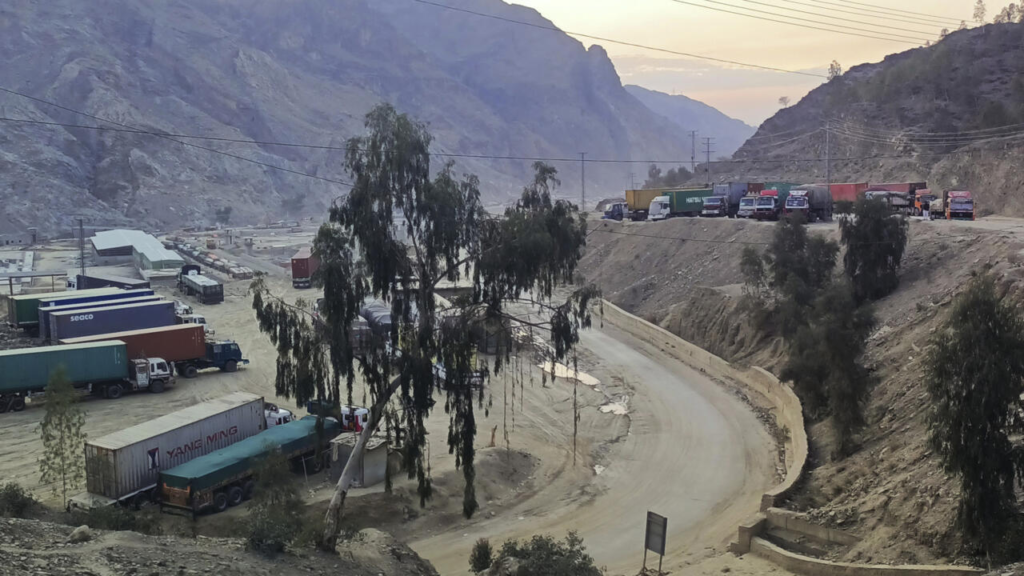Afghan Taliban strike back at Pakistan, targeting border posts in response to December 24 airstrikes that killed 46. Tensions escalate over disputed Durand Line.
The ongoing conflict between Afghanistan and Pakistan intensifies with border skirmishes, disputed territories, and mutual allegations of cross-border militant activities.
The Airstrikes That Sparked Retaliation
On December 24, Pakistan launched airstrikes targeting alleged insurgent training facilities in Afghanistan’s Paktika province. The attacks, reportedly aimed at neutralizing militant hideouts, resulted in 46 casualties, including women and children, according to Taliban officials.
The Pakistani government has justified these strikes, asserting they were necessary to curb cross-border militant activities threatening Pakistan’s security. However, Afghanistan described the action as a brutal and aggressive violation of international norms.
Read : Pakistani Strike Destroyed Seven Villages in Afghanistan
In the wake of the airstrikes, tensions escalated rapidly. Afghanistan’s Taliban government summoned Pakistan’s diplomatic representative in Kabul to issue a formal protest note. They condemned the strikes as a blatant disregard for Afghanistan’s sovereignty and vowed retaliation, intensifying the animosity between the two nations.
Afghan Taliban strike back at Pakistan
True to their word, the Taliban forces targeted multiple posts inside Pakistan near the disputed border on December 28. While the Afghan Defence Ministry refrained from explicitly identifying the attack’s location, it referred to areas “beyond the hypothetical line.”
This term is frequently used by Afghan authorities to describe the contested Durand Line, a border demarcated in the 19th century by British colonial powers.
The Durand Line has been a perennial source of tension between Afghanistan and Pakistan. Afghanistan refuses to recognize it as an international boundary, claiming it unfairly divides tribal regions and communities.

Pakistan, on the other hand, asserts its legitimacy and seeks to secure it against cross-border militant threats. The ambiguous status of this border has created a volatile environment prone to conflicts and misunderstandings.
The Taliban’s retaliatory strikes targeted several points they accused of harboring “malicious elements and their supporters.” These areas were described as centers coordinating attacks within Afghanistan. However, Afghan officials stressed that they do not consider these territories as part of Pakistan, adding to the dispute over border demarcation and sovereignty.
Escalating Tensions and the Path Forward
This latest exchange of hostilities highlights the fragile and deteriorating relationship between Pakistan and Afghanistan under Taliban rule.
Pakistan has consistently accused the Taliban of failing to address cross-border militancy, alleging that Afghanistan has become a haven for insurgents targeting Pakistani territories. The Taliban government, however, denies these accusations and counters that Pakistan is undermining Afghanistan’s sovereignty through its military actions.
The ongoing conflict threatens regional stability. Both nations face challenges of internal insurgencies, governance crises, and strained international relations. Yet, their inability to establish cooperative mechanisms for border management and counterterrorism exacerbates mutual distrust.
The international community remains concerned about the potential fallout from these tensions. The United Nations and other diplomatic bodies have called for restraint and dialogue between the two neighbors to prevent further escalation.
However, the absence of a mutual framework for resolving disputes over the Durand Line and cross-border militancy casts a shadow over the prospects for lasting peace.

The retaliatory strikes by the Taliban and Pakistan’s earlier airstrikes underscore the deep-seated issues plaguing Afghan-Pakistani relations. The contested Durand Line continues to be a flashpoint, fueling mistrust and armed conflict.
As both nations grapple with internal and external challenges, their strained relationship poses risks not only to their stability but also to broader regional security.
The recurring clashes between Afghanistan and Pakistan underscore the urgent need for international mediation to prevent further bloodshed. Regional powers and global organizations must step in to facilitate dialogue, focusing on resolving the dispute over the Durand Line and establishing mechanisms to curb cross-border militancy.
Without neutral intervention, the prolonged hostility risks spiraling into broader instability, affecting not just the two nations but the entire South and Central Asian region. Diplomacy and cooperation are the only viable paths to fostering peace and stability.

